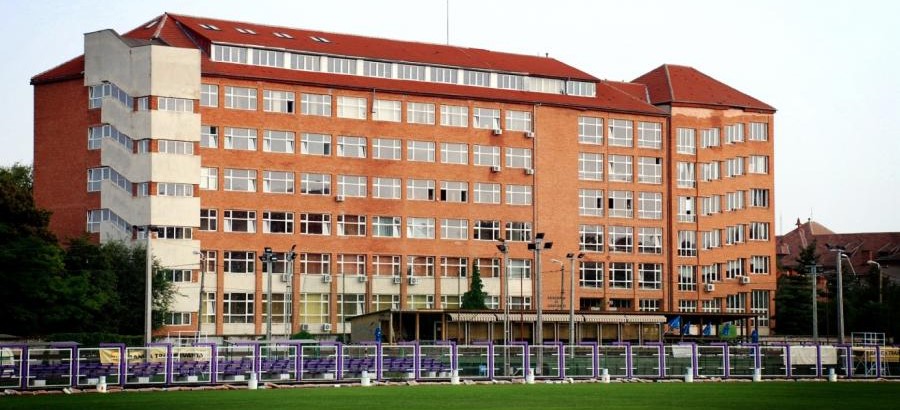The Faculty of Civil Engineering Timişoara was established as the third faculty of the Polytechnic School, on November 11th 1941. The Polytechnic School was founded on the same date, November 11th, but 21 years before, shortly after the union of the Romanian territories following World War I, in order to answer the requirements of Banat County for engineering education.
Today, Politehnica University Timişoara is a university of advanced research and education (first category status obtained at the national evaluation in 2011), and possesses an educational and research infrastructure comparable with the most prestigious European universities.The study programs are organized within the “Bologna” paradigm and comprise all the three degrees: Bachelor, Master and Doctorate.
During its 75 years of existence, the Faculty of Civil Engineering in Timisoara has got national and international recognition, and through the reputation of its staff and professional reliability of over 18000 graduates, has built its tradition in the frontline of academic, scientific and professional development in the field.
The educational offer is adapted to both national and international standards for three study domains, which are closely related: Civil Engineering, Building Services Engineering and Geodetic Engineering. This offer, which includes an Erasmus Mundus Master program in cooperation with five top level European universities, and a double Diploma agreement with one of the most prestigious universities of Germany, highlights the international reputation of excellence of our faculty.
The research topics are adapted to the actual trends in the field, which is demonstrated by the important number of national and international research projects in which the faculty is involved, together with partners from important universities, research centers or industrial companies. All these, corroborated with the large number of young professors habilitated to lead doctoral studies, and with the laboratories provided with modern equipment, ensure all the conditions for a scientific research activity of highest level.
The Faculty of Civil Engineering Timisoara is involved in the national standardization activity, as well as in consulting activities for important objectives. From the early 1990s, the faculty has pioneered the introduction and promotion of European Structural Eurocodes in Romania. Today, members of the faculty represent our country in the Working Groups and Project Teams of CEN - Comité Européen de Normalisation, for drafting the new generation of Eurocodes.
MATERIAL RESSOURCES
The Faculty of Civil Engineering uses five buildings of Politehnica University Timisoara, having a destination tightly related to its activity. All buildings are provided with modern ressources for education and research. The faculty students have at their disposal:
- 8 amphiteatres;
- 25 rooms for seminars and didactic laboratories;
- 10 rooms with PC’s equipped with calculation/design software;
- 7 research laboratories affiliated to the departments.
The students benefit of free access to the Politehnica University Timisoara Library and are accommodated in university hostels. The two university restaurants from the campus actually function as subsidized units for the students. The student access to the sport bases of the university is free. These bases have fitness rooms, footbal, tennis and baschetball fields, atletism lanes and two semi-olimpic swimming pools, one indoors and the other outdoors.
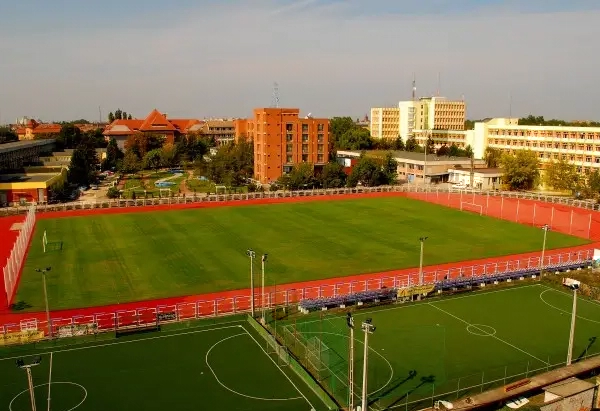
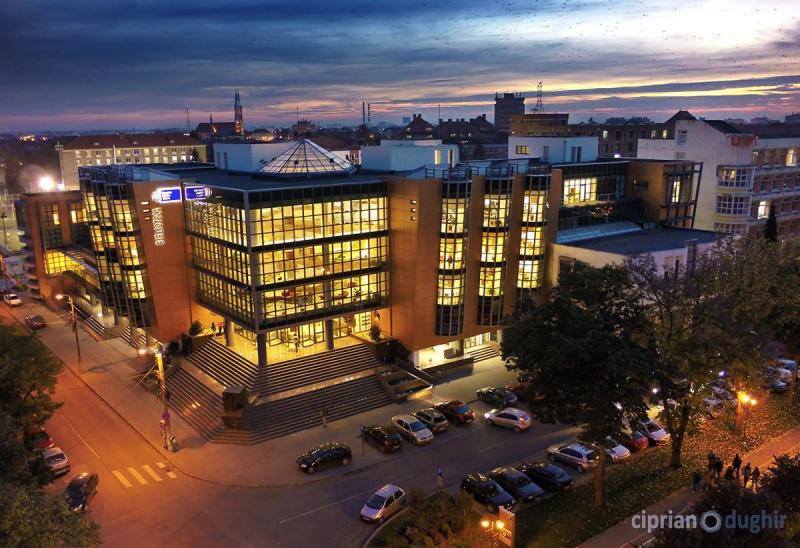

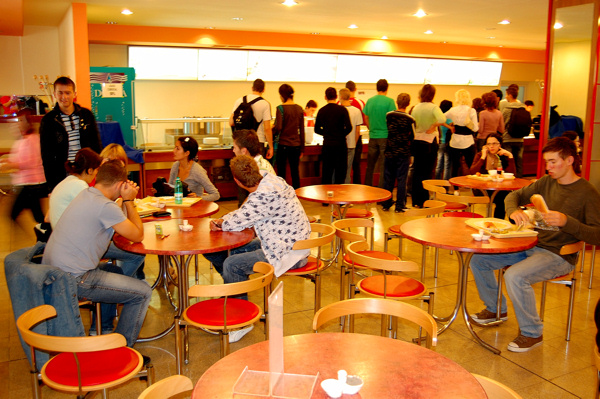
HUMAN RESSOURCES
The Civil Engineering Faculty benefits from a staff with remarkable achievements in the field of research, design and expertise. This fact is proven by the presence of many staff members in scientific and academic forums, professional associations and technical committees at national and international level.
The human resource is the essential factor in consolidating and developing the faculty performance and its continuous professional development. Thus, the teaching staff promotion based on performance and professional integrity represents one of faculty major objectives.
The academic staff of the faculty gather over 90 teachers. The development of the educational and research activity is also provided by 12 engineers and technicians, while the administrative activity is provided by a staff of 15 persons.


THE EDUCATIONAL OFFER
The educational programs of the Civil Engineering Faculty are all accredited and similar to the programs of the other Romanian and EU faculties in the field. The curricula for the bachelor degree is structured in order to provide a basic instruction valid for all the study domains and to provide sufficient flexibility in specialty choice.
Thus, at the level of first and second year, the curricula is common for all future specializations within the “Civil Engineering” domain. The specific subjects which provide the training in the accredited specialties are included in the curricula as optional and are grouped in the third and fourth year. The curricula for the first year in “Building Services” is also identic to the “Civil Engineering” one. The bachelor degree curricula were adapted to the new approach, facilitating the implementation of oriented practical stages, by reuniting all industrial companies practice in the third year.
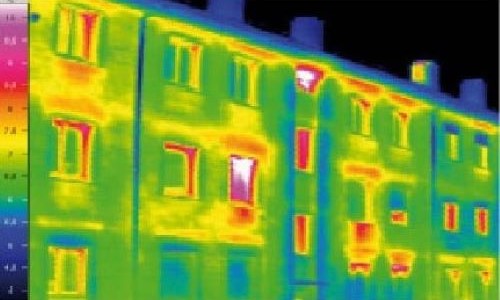
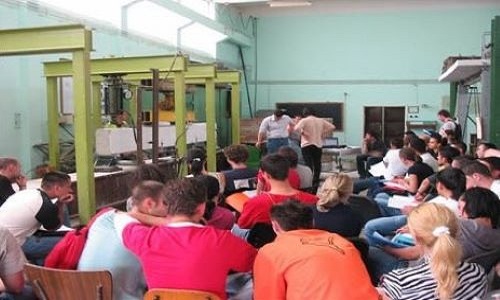
The master degree curricula is also structured based on the idea that they should provide continuity in the main specializing directions of the bachelor degree, but also the training of engineers in several priority directions, given by present day policy in constructions.
In the international spirit (part of the Timisoara education in civil engineering), the unified European code package EN-Eurocodes was implemented and constantly considered in the educational process, long before it became standardized at national level as SR-ENs.
Worldwide opening is an important factor in the development and consolidation of the faculty, which has proved a durable preoccupation in the matter, extended on more than two decades. The best proofs are the two programs in foreign language, i.e. the bachelor degree in German and the bachelor/master degree in English. In the last years, more and more foreign students have been attending, via Erasmus, the German/English programs and not only.
The specializations of Civil Engineering in English and Civil Engineering in German were created in 1991, with the purpose of providing a modern educational system, compatible with the one in EU countries and which could enable the practice of the civil engineer profession in the globalized context.
From the moment it was founded, DAAD - Deutscher Akademischer Austauschdienst – paid special interest to Civil Engineering in German specialization. In 1992, the DAAD approval was given for a German department within the Faculty of Civil Engineering. Members of the academic staff teaching at the specialization and students benefited from DAAD scholarships. In 2005, after more than ten years of cooperation, the President of the Technical University of Munich – Prof. dr. HC ing. Wolfgang Herrmann - and the Rector of the Politehnica University Timişoara – Prof. dr. ing. Nicolae Robu – signed, in the context of the internationalization strategy of both universities, an addendum to the existing agreement, concerning the double diploma offered to the students of both universities.
The evolution and progress of the Civil Engineering in English study program is tightly related (by its very nature) to international cooperation and university exchanges. A first step was an individual initiative - meeting of the Dean of the Civil Engineering Faculty with Mr. John Scott, Bsc(Hons) CEng MIstructE MCIOB, from Edinburgh, U.K in 1992 - followed by some Romanian students mobility from Timisoara to Edinburgh, partly sponsored by the UK Institution of Structural Engineers, Scottish Branch. The relations evolved later in 1998, by means of the creation of the Scottish-Romanian University Exchange (SRUE), as a non-profit organization providing technical documentation and sponsoring student/staff exchanges.
Within the Faculty of Civil Engineering Timisoara, besides the Master Program in English entitled „Advanced Design of Steel and Composite Structures”, another international and inter-disciplinary master is functioning (in Erasmus Mundus). Entitled „Sustainable Constructions under Natural Hazards and Catastrophic Events - SUSCOS”, it started based on an international collaboration with five famous European universities: University of Liege – Belgium, The University of Naples Federico II – Italy, Czech Technical University in Prague – Czech Republic, The University of Coimbra – Portugal, and Luleå University of Technology - Sweden.
The degree awarded is a Master Degree, provided as a multiple diploma.
Until 2016, marking the 75th anniversary of the Faculty, a number of 18280 specialists have graduated from the Faculty of Civil Engineering Timişoara.
Study Programs - Bachelor degree
Civil engineering
Civil, Industrial and Agricultural Constructions / Civil Engineering in English / Civil Engineering in German
The programs provide the adequate skills for engineers in order to control the design, construction, rehabilitation, exploitation and maintenance of new and existing buildings of all types, by using classic and modern building materials. The programs in English and German benefit of special grants for studies in Great Britain and Germany.
Railways, Roads and Bridges
The program provides the adequate skills for engineers in order to control the design, construction, rehabilitation, exploitation and maintenance of transport infrastructures.
Hydrotechnical Developments and Constructions
The programs provide the adequate skills for engineers in order to control the design, construction, rehabilitation, exploitation and maintenance of various elements regarding the water related infrastructure.
Sanitary Engineering and Environment Protection
The program provides the adequate skills for engineers in order to develop efficient solutions in the fundamental urban development issue of design, construction, rehabilitation, exploitation and maintenance of water supply and sewerage engineering arrangements.
Geodetic Engineering
Land Measurement and Cadastre
The program provides the adequate skills for engineers in order to manage the design, realization and exploitation of works in the field of terrestrial measurements with different destinations (geodetic engineering works and surveying, cadastre, town planning, etc.).
Building Services Engineering
Building Services
The program provides the adequate skills for engineers in order to develop efficient solutions to provide the comfort in the built environment (heating, ventilation, water supply, gas supply, electrical systems).
Study Programs – Master degree
Civil engineering
Advanced Design of Steel and Composite Structures (in English)
The focus of is to provide students with the engineering ability to design and construct safe steel, and composite steel-concrete structures, including environmental aspects. The program continues the bachelor studies in civil engineering through topics such as advanced analysis and design methods, new structural materials, robustness of structures, fire design.
Construction Rehabilitation
The social and economic impact of the durability of constructions is obvious, since a lot of resources are still used for rehabilitation and maintenance of existing structures, which should respond to new quality criteria, new design codes and actions. The program aims to qualify the bachelor graduates to design/ re-design new/ existing structures, and to take part, as specialists, at construction, repair and rehabilitation works.
Transport Infrastructures
The program is aimed at Bachelor graduates who wish to reach superior professional skills in specific activities concerning transport system design, development of transport networks, rehabilitation of roads, railways and bridges, design of airports and maintenance on the transport infrastructure.
Optimization of Hydrotechnical Systems
The program is aimed to continue the Bachelor program Hydrotechnical Developments and Constructions, and to expand the educational area in the field. Covering the hydraulic aspects of the complex phenomena, studies involving special hydraulics, hydro-technical mathematical modelling or flow analyses are developed, using special purpose software.
Optimization of the Exploitation of SanitaryEngineering and Environment Protection Systems
The program provides specific knowledge of the sanitary urban infrastructure, providing in-depth studies of issues regarding water supply and sewage efficient systems, water sources protection, used water cleaning and environmental health protection. Course topics are related to biotechnical methods for fresh and used water treatment or to rehabilitation and refurbishment of water supply and sewerage systems.
Sustanaible Development - Energy Audits and FireSafety of Buildings
The energy consumption as well as the fire vulnerability of buildings should be decreased, in order to create a sustainable built environment. The buildings should respond to new demands regarding these criteria and consequently should be properly designed or rehabilitated for energy saving and fire safety. The program provides specific knowledge to design and re-design the new and existing buildings, considering these aspects.
Geodetic Engineering
Cadastre and Evaluation of Immovables
The program aims to continue the Bachelor program Land Measurements and Cadastre and to expand the educational area on issues of real estate evaluation that generates additional skills for the graduates. The graduates should be able to find technical and technological solutions for surveying and geodetic works with different destinations, performed under various conditions.
Building Services Engineering
Optimization and Upgrading of Building Services
The program is aimed to continue the Bachelor program Building Services, and expand the educational area in the field. The program is focused to ensure the knowledge for the optimization of the specific equipment and building services in order to improve the comfort and the energy efficiency, taking into account the protection of the environment.
STUDY PROGRAMS - Doctoral studies
The educational offer of the Faculty includes also doctoral studies, in the domains of Civil Engineering, Building Services Engineering and Geodetic Engineering. Within the faculty, there are 22 PhD supervisers. Among these, in the last 3 years, 10 young professors have defended their habilitation thesis.
